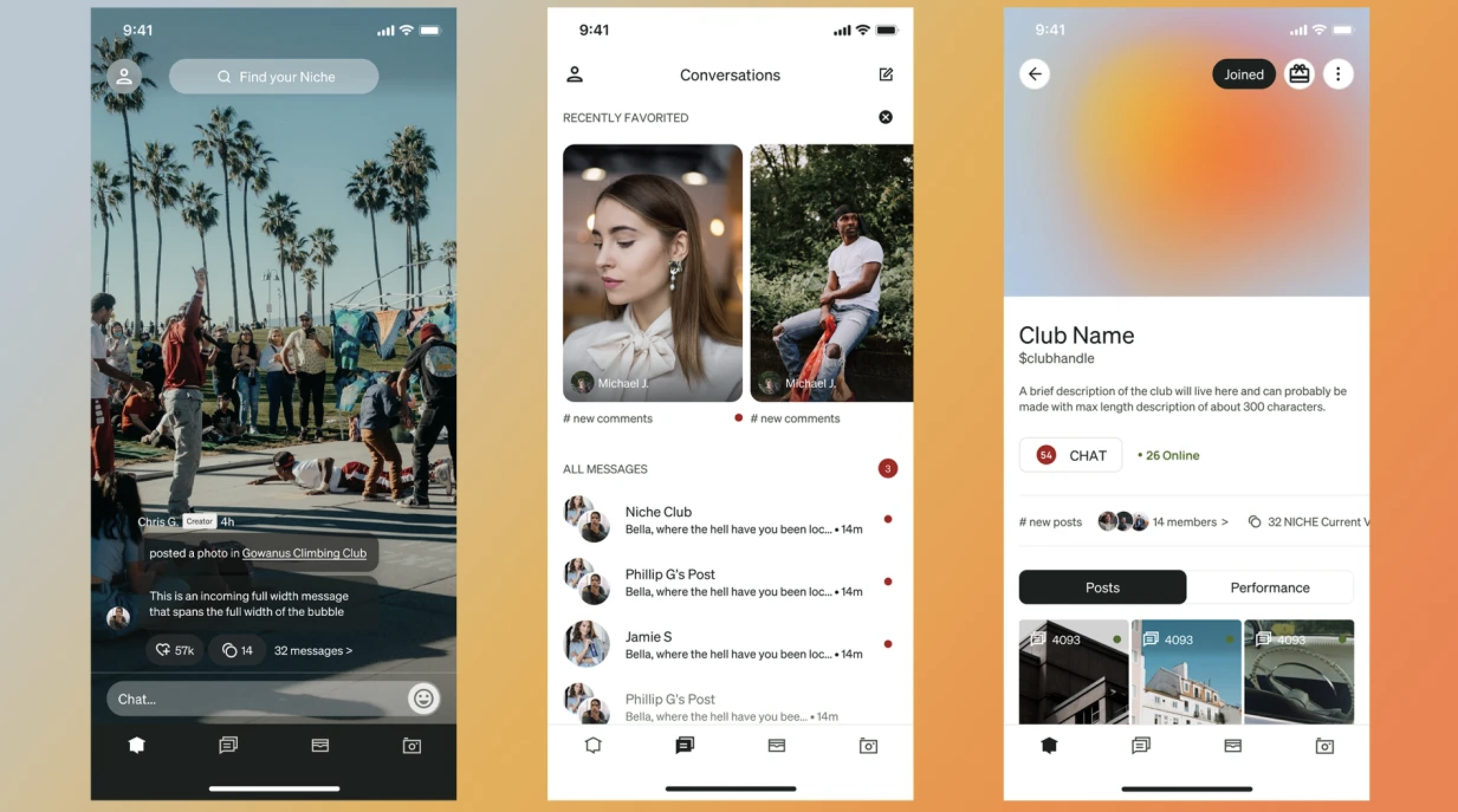Hopeful Tomorrow

Key Takeaway:
While healthy life extension is raising public interest and VCs or tech companies' attention, in 2023, we expect consumers to embrace long-termism, trust in humanity, and the wellbeing of future generations, while evolving into a hopeful take on the present.
Trend Type: Social & Business
Sub-trends: Longevity & Hopeful tomorrow, Feel-good feeds, Positivy content, Immortality-as-a-service, Gene editing
Use Cases
LONGEVITY & HOPEFUL TOMORROW: The billionaire founder of the outdoor fashion brand Patagonia has given away his company to a charitable trust. Yvon Chouinard said any profit not reinvested in running the business would go to fighting climate change. He claimed that profits to be donated to climate causes will amount to around $100m (£87m) a year, depending on the health of the company.
Feel-Good Feeds: Gas is the ultimate compliment app. Users are asked multiple-choice questions that are positive and oriented to compliment their classmates and peers. Aimed at teens, the app requires users to designate their school and distributes compliments across its platform while motivating users to continue to compliment others, fostering a positive and cooperative app environment.
Feel-Good Feeds: The Niche app is a new concept in social media: creator-owned content, rather than user-targeted content. The decentralized Web3 application consists of members, not users, who engage in communities fostered within the app based on interests and genuine connection. They are incentivized by posting content for positive, like-minded engagement rather than likes and digital promotion.“We see social media getting smaller, more intimate. People are moving towards these networks with like-minded shared interests, backgrounds, or identity,” Christopher Gulczynski, cofounder and CEO of Niche, tells Wunderman Thompson Intelligence. The future of social media, according to Niche cofounder and CTO Zaven Nahapetyan, is a place where “people have options, control, and power in their social interactions online the way they
Positivity Content: ‘Somewhere Good’ is a new positivity-focused social media platform founded by people of color. The company recently raised $3.75 million USD to create a platform focused on healthy conversations and positive experiences for underrepresented members of society. Currently, the platform exists in a beta form with an invite-only user acquisition model. With Somewhere Good, the founders hope to create a platform that is not focused on simplistic, digestible content, but rather on innovative forms of digital discovery, playfulness, and positivity. The founder of Somewhere Good, Naj Austin, stated that “current digital solutions prioritize a predominantly white, cisgender, heterosexual experience,” and that her platform is focused on challenging these internet trends and moving them toward a more
Positivity Content: Doomscrolling is a new term that describes the act of consuming a large quantity of negative online news at once and it can be harmful to mental health. During a time of uncertainty, loneliness and travel restrictions, Inspired by Iceland hopes to inspire the opposite with a new interactive site for “Joyscrolling.” The Icelandic tourism site Inspired by Iceland created the Joyscroll site to offer over 75 feet of joyful content that can be scrolled through to elicit positive feelings. As they scroll, users will encounter the sights and sounds of soothing streams and peaceful landscapes. Although people are avoiding traveling for pleasure at this time, the site calculates a user’s scrolling distance and helps them become
Immortality-as-a-service: Altos Labs, which is backed by Jeff Bezos and counts the Nobel Prize-winning co-inventor of gene-editing tool CRISPR Jennifer Doudna as a director, closed a mammoth $3B funding deal in early 2022. Its stated aim is to “reverse disease” through what it calls “cellular rejuvenation programming” — in effect, hacking cellular processes to interrupt mechanisms associated with aging and tricking cells into re-entering a more youthful, healthier state.




